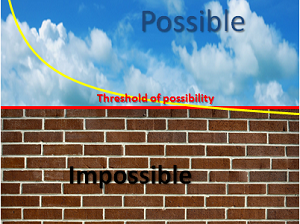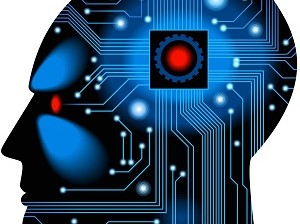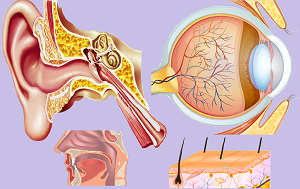Tag Archives: interpretation
05 Apr Knowing About Agents and Instruments

Cause and Effect Causal knowledge can be learned by experience, as described in our friend Yorrick’s early experiences with the source of good feelings (Section 4: Seeds of Knowledge). The process of learning from experience is empirical and very fuzzy, meaning it is difficult to describe or replicate the learning process artificially. Cause can also […]
19 Mar Fuzzy Logic Section Intro

Why do we find Mr. Spock, Commander Data or C3P0 so lovable? We have all known people like them: they are the ones who see the world in black and white. Spock had an excuse – he was a Vulcan who knew a lot. Computers, on the other hand, can be downright exasperating when they get […]
18 Mar Monkeys with Typewriters at the Threshold

Monkeys and Machines What’s wrong with the random Hamlet? When is the last time you’ve seen monkeys with typewriters? First of all, we must ask if there is anything that is perfectly random. If there is, and it is not influenced by any physical law, then the asymptotic theory of random probability is valid, and […]
06 Mar Inference in the Face of Uncertainty

Do you know what I’m about to say? If your mind were not able to race ahead of the words and build a set of expectations about what comes next, you may not be able to understand me speaking or writing. But you can predict a lot more than your conscious awareness tells you. A […]
05 Mar Decide on Fuzzy Logic

In this section of Understanding Context, we describe not just how people think, but how they use their thoughts to guide their actions. We are particularly concerned with how people integrate multiple ideas or constraints into their thinking and decision-making processes, then put those decisions into action. It is sometimes said that the difference between information […]
01 Mar Hold Onto the Memories

When you see Grandmother, is there a cell or cluster of cells in your brain that light up and say: “I recognize that face – It’s Grandmother!” The Grandmother cell theory suggests that there is such a cell or group of cells where that knowledge is explicitly stored. Earlier posts included a discussion of feature selectivity […]








